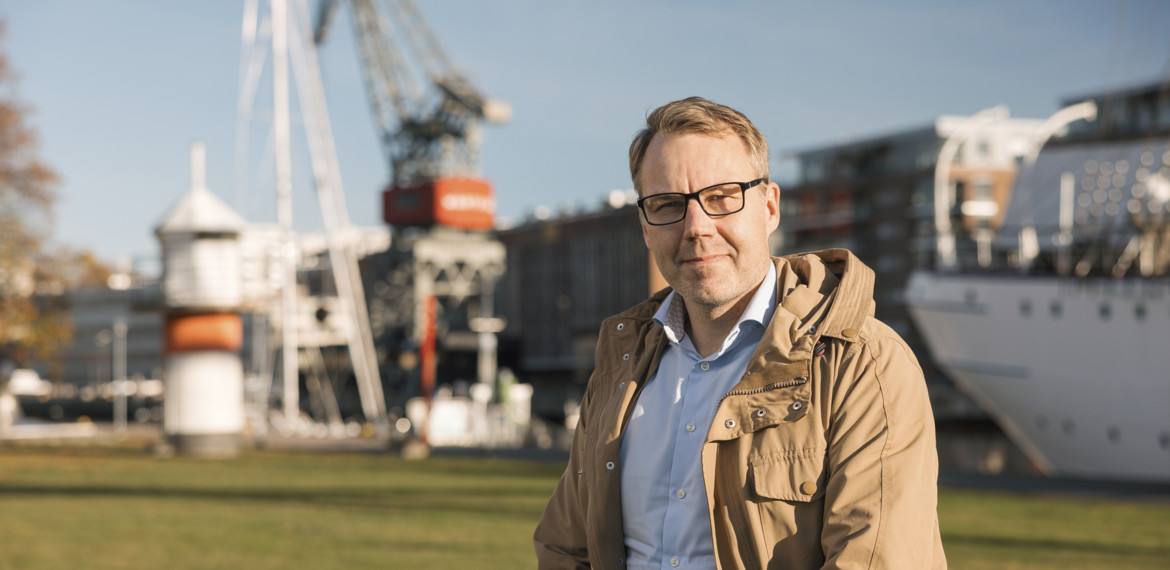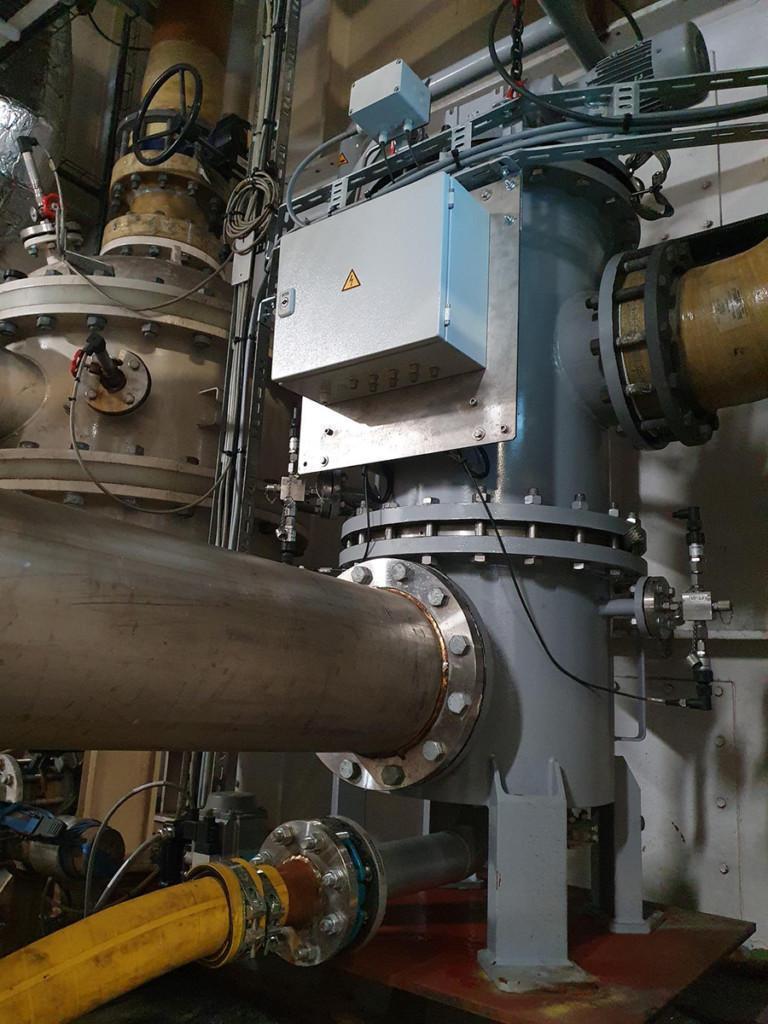New innovation removes microplastics from the sea
Wärtsilä and shipping company Grimaldi Group are launching a solution that will filter out microplastics from the seawater used by the sulphur scrubber.

There is a cargo ship sailing on the Norwegian coast at present whose exhaust gas scrubber is testing a new kind of technology.
“Microplastics are filtered out from the sea water used by the scrubber before the water is drained back to the sea. The principle is quite simple, but it has not been used before”, says Director Jan Othman. He is responsible for the treatment technology of exhaust gases in Wärtsilä.
The solution patented by Wärtsilä and Grimaldi is suited to both old and new vessels. “The system requires very little changes on board, and there is no need, for example, to replace the entire scrubber.”
Ship cleans the sea alongside its regular operating
Mr Othman describes the scrubber as a large shower which is used to treat the exhaust gases of a ship. The shower is switched on whenever the vessel is moving. High volume of water passes through the scrubber, so the filtering system is able to collect a lot of microplastics.
“In the tests run by Grimaldi, the filter collected 65,000 microplastic particles on an 18-hour sea voyage between Italy and Spain.”

At present, a 10 MW scrubber processes around 450 m3 of water per hour. According to the first tests, the microplastics filtering system collects effectively particles of under 10 µm. The microplastics content by volume collected from sea water was around 76 particles/m3.
The solution has great potential
Microplastics are a major global problem. Approximately 400 million tonnes of plastic is produced globally every year, and it is estimated that 3 per cent of it ends up in the sea.
“Our innovation alone is of course not enough to clean the seas, but it may be an important part of the solution among other innovations.”
The EU has acted on the microplastics problem by prohibiting, for example, plastic disposable tableware and cutlery. There is no legislation that obligates active cleaning of the seas, one of the reasons being that there have not been technical solutions available to do that.
“Binding legislation may not be coming in the future, either, at least not in the near future. We believe, however, that shipping companies want to be trailblazers and contribute voluntarily to the cleaning of the seas.”
On the market next year
After the pilot conducted in Norway, the innovation is planned to be launched on the market next year. It may soon be in use in the Baltic Sea as well. “It is possible that the system will be introduced here in the first phase on board the vessels of Finnlines which is owned by Grimaldi.”
Wärtsilä’s Exhaust Treatment unit is the leading manufacturer of solutions for the treatment of flue gases. “The microplastics filtering integrated in the sulphur scrubber has been recently developed in Norway in particular. But the Wärtsilä employees in Turku have also contributed to the project”, Jan Othman says. He himself participates in the project in Turku.
Text: Matti Välimäki
Photos: Ilari Välimäki ja Wärtsilä

